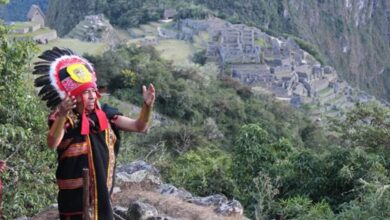Guyana requests support from the United Kingdom to get off the list of maritime risk zones
Guyana's President Irfaan Ali calls for the UK's support for the Lloyd's Market Association to reclassify Guyana from a high-risk maritime zone due to the ongoing crisis with Venezuela, a move he believes creates "instability".

Photo: United States Department of State
EFE
Escucha este artículo
Leer en español: Guyana pide apoyo del Reino Unido para salir de lista de zonas marítimas de riesgo
"Together we will have to talk with the insurer so that they understand the nuances, the reality of Guyana and the controversy," said the president, referring to the United Kingdom, a country of which Guyana was a colony until its independence in 1966, according to local media published this Wednesday.
Concern over Lloyd's Market Association Decision
Ali expressed concern at the decision of the Lloyd's Market Association Joint War Committee, which affects ships visiting offshore facilities in Guyana's Exclusive Economic Zone, beyond "territorial waters".
"Lloyd's analysis is pandering to what the people want: creating instability and insecurity," denounced the president.
Given this, Ali spoke with the High Commissioner of the United Kingdom in Guyana, Jane Miller, about the need to approach the company for a review of this evaluation.
"I think they can help us reverse that decision by Lloyd's and the increase in insurance costs that this may bring to us," he added.
Economic Impact Warning by Lloyd's Market Association
The Lloyd's Market Association statement warned that the move is likely to increase the cost of shipping crude oil from facilities run by ExxonMobil.
The British Secretary of State for the Americas and the Caribbean, David Rutley, expressed last Monday in Guyana his "unequivocal" support for the country in its dispute with Venezuela, which has harshly criticized the alleged interference of the United Kingdom.
That same day, the president of Venezuela, Nicolás Maduro, reiterated his intention to "fully recover" Essequibo, the territory of almost 160,000 square kilometers in dispute with Guyana.
The Government of Venezuela also reported on Monday the activation of business units for oil development in Essequibo, which has been administered by Guyana since 1966.
Guyana's Oil Wealth and Economic Growth
The territorial waters of that region contain large reserves of oil and natural gas, most concentrated in the Stabroek block, which were discovered in 2015 by ExxonMobil.
These reserves, which are estimated at around 11 billion barrels of oil, have led Guyana to be the country with the highest economic growth in the world (57.8% in 2022).
The conflict escalated after Venezuela approved on December 3 in a unilateral referendum to annex the disputed area, and launched an "action plan", which also includes the settlement of a military division near the area, without incursions at the moment.
Read also: UK Backs Guyana Amid Renewed Venezuelan Claims on Essequibo Region
However, Venezuela and Guyana agreed last Thursday not to threaten or use force "under any circumstances", including those "derived from any controversy existing between both States", such as the dispute over the Essequibo.




